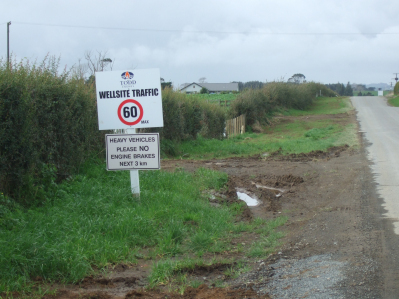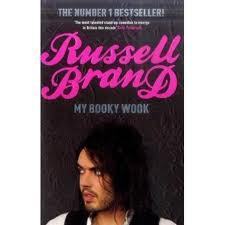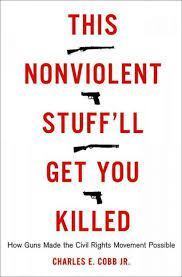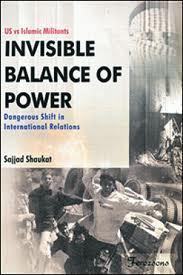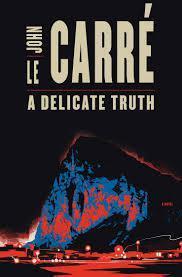Stuart Jeanne Bramhall's Blog: The Most Revolutionary Act , page 1360
June 30, 2014
Marijuana Cash-Only Business in Colorado

Owing to recent legalization, recreational marijuana use is a growth industry in both Colorado and Washington State. In Colorado alone, annual turnover is projected to reach $10.2 billion by 2018. Yet owing to archaic federal banking laws, it remains a cash-only industry.
A BBC Business report gives the example of Pinkhouse Blooms. A chain of five marijuana dispensaries grossing over $100,000 a day, they remain a cash-only business. No Denver bank will give him a checking account. As Avinash Tharoor reports in the Huffington Post, the FBI is pursuing Bank of America, JP Morgan and HSBC for laundering billions of dollars of Mexican cartel money. Meanwhile they thumb their nose at legal marijuana merchants.
Relying on armored cars and armed security guards, owner Elliott Klug uses cash to pay his suppliers and employees – as well as $35,000 in monthly sales tax and $45,000 in state licensing fees.
Federal Laws Encourage Money Laundering
Although the Obama administration has directed federal attorneys not to prosecute marijuana users, growers, and distributors in states which have legalized marijuana (for recreational and/or medical use), banks that do business with marijuana producers and distributors remain in legal limbo. At present all federally insured banks that accept deposits from “drug dealers” are subject to suspension of their banking license and criminal prosecution under federal drug racketeering laws.
Both the Bank Secrecy Act and the Anti-Money Laundering Act were enacted to prevent money laundering. Ironically they do just the opposite in the eleven states with legal marijuana dispensaries. Cash-only businesses are notoriously susceptible to both tax evasion and money laundering. Without bank records, there’s no audit trail. Federal and state authorities only have the owner’s say-so for the amount of business they take in.
In February the Obama administration issued “guidance” that the Justice Department and FinCEN (under the Treasury Department) is “unlikely” to prosecute banks provided they meeting specified conditions, including reporting suspicious criminal activity to law enforcement. Unfortunately this “guidance” offers no real legal immunity, as all marijuana use is still illegal under federal law.
In 2011 Congressman Jared Polis (D-Colorado) tried to legislate immunity for banks doing business with medical marijuana dispensaries with his proposed Small Business Banking Improvement. The bill died in committee, and it doesn’t appear that similar legislation is forthcoming any time soon. Not if a myopic press release by Senators Charles Grassley and Diane Feinstein, as co-chairs of the Senate Caucus on International Narcotics Control, is anything to go by.
Their joint letter and press release castigate the Obama administration for “assisting those businesses that seek to inject the proceeds of criminal activity into the nation’s financial system.”
Makes you wonder when Feinstein was last in California, the state she supposedly represents. California was the very first state to set up legal marijuana dispensaries in 1996 when voters passed an initiative legalizing marijuana use for medical purposes.
Big Boost from State Marijuana Tax
Both Colorado and Washington have suffered major budget difficulties since the 2008 downturn. And in both states, legalizing (and taxing) recreational marijuana use promises a major cash injection for state coffers.
In Colorado, retailers pay a 10% marijuana tax in addition to 2.9% general sales tax to the state. County and city authorities may charge additional tax. In Denver, for example, the total sales tax can reach as much as 21%. This is in addition to a 15% excise tax charged on marijuana as it leaves the cultivation facility.
Washington charges a 25% excise tax on sales at each transaction level: from the producer to the processor, the processor to the retailer and the retailer to the customer. This is in addition to B&O (Business and Occupations) and sales tax all businesses pay. As of July 8, producers will be licensed by the Washington State Liquor Control Board to sell directly to consumers.
Small Local Credit Unions Do Business with Washington Dispensaries
In Washington State, two brave local (federally insured) credit unions (Salal Credit Union and Numerica Credit Union) have announced their intention to do business with marijuana dispensaries when they begin operation July 8. Unlike the big boys, they aren’t laundering money for the Mexican cartels or, presumably, speculating on derivatives and food futures
photo credit: Wikimedia Commons
Cross posted at Veterans Today


June 28, 2014
Reverend Billy vs Monsanto Robot Bee Drones
Below is a ritual Robobee exorcism Reverend Billy and the Church of Stop Shopping performed in the Harvard labs on May 25,2014
The world is facing massive die-off of bee populations, thanks to heavy use of pesticides manufactured by Bayer and Monsanto.
The loss of bee populations severely threatens global food production (70-80% of plant and animal foodstuffs depend on bee pollination).
In response, the EU has banned pesticides found to be harmful to bees.
In contrast the US Department of Agriculture (USDA) has declined to enact a similar ban in the US, largely due to massive congressional lobbying by Monsanto.
Instead Harvard University is researching the creation of tiny drone bees – called Robobees – to replace the bees killed off by pesticides. Unbelievable, isn’t it – the lengths scientists and governments will go to to avoid doing the right thing.
Support the work of Reverend Billy and the Church of Stop Shopping at http://www.revbilly.com/


June 26, 2014
Our What the Frack Tour – June 21, 2014
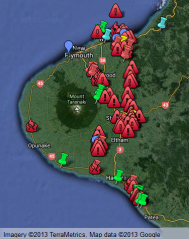 legend: red triangle: fracking well sites
legend: red triangle: fracking well sites
red flame: gas/oil production stations
red pin: deep well injection sites
green pin: “land farms” and land treatment sites.
source: Climate Justice Taranaki
We Have Been Invaded
As you can see from the above map, pristine Taranaki dairyland has been totally invaded and colonized by foreign oil and gas companies. New Zealand’s lax regulatory environment has produced a feeding frenzy. Eager to offshore as much profit as possible, they have transformed our clean green countryside into an industrial site.
A recent report by the New Zealand Commissioner for the Environment is highly critical of both Taranaki Regional Council (TRC) and New Plymouth District Council for their failure to regulate foreign energy companies in accordance with existing New Zealand law.
The PCE, bless her, makes the link between fracking and climate change front and center in her report. In her introduction, she questions the common assertion that natural gas is a so-called transition fuel, given its substantial contribution to atmospheric CO2. She also calls on the New Zealand government to specify exactly how they will fulfill their commitment to reduce New Zealand’s greenhouse gas emissions to 5% below our 1990 emissions by 2020.
Improper Disposal of Fracking Waste
Her report goes on to chastise TRC for the failure to regulate discharge of fracking waste. Despite vociferous complaints from local farmers and residents, TRC continues to permit discharge of untreated fracking waste into streams that provide water for livestock and, and in several cases, human beings.
She’s especially critical of TRC’s use of “visual inspection,” rather than chemical testing, to assess the water quality of these streams. One particularly silly monitoring report refers to inspectors signing off on water quality because they heard frogs singing.
 “Land farmed” site with grazing cattle
“Land farmed” site with grazing cattle
Another common disposal method is to spread wastes on pasture and grow grass and graze cows on it – without testing the cows, grass or milk for heavy metals, barium, benzene, hydrocarbons or other chemicals commonly found in fracking waste.
The experience with toxic sludge in the US is that heavy metals and other toxic chemicals bio-accumulate in plants grown in contaminated soil
Given given that dairy products are New Zealand’s number one export, this so-called land farming could do major damage to our country’s economy. Especially as China, our major export market, is already exquisitely sensitive to the milk contamination issue.
Emergency Evacuation Plans
Another major concern in the PCE’s report relates to the Emergency Evacuation Plans fracking companies are required to file for each drill and production site. Many fracking sites are located less than 500 meters from private homes.
As here
here
here
and here
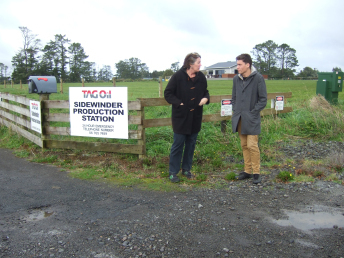 Sarah Roberts and Robert Moore – Green Party candidates for New Plymouth and Taranaki-King Country
Sarah Roberts and Robert Moore – Green Party candidates for New Plymouth and Taranaki-King Country
For some reason, none of these residents have been notified that they are slated for evacuation in the case of an accidental gas release or explosion. As an example there are 36 owners and occupiers identified on the TAG Oil emergency management plan (gas release/spill contingency plan covering 500m) at Sidewinder A wellsite. These owners and occupiers will not be aware of this.
Drop in Property Values
The owners of the last property pictured above are desperate to sell it. The value of properties located adjacent to fracking wells have plummeted.
This is due to the constant noise, exposure to air and water pollutants, heavy industrial traffic
and flaring

What’s more the property adjacent to fracking wells can’t be insured, owing to the risk of leaking wells, inadvertent gas releases and explosions. Under New Zealand law, the property owner assumes liability for an abandoned well site that leaks.
Todd Oil (affiliated with Shell) has recently agreed to top up sales proceeds of land owners forced to sell their property at a loss. But if you live adjacent to a Tag Oil or Greymouth Petroleum fracking site, you’re out of luck.
Health Consequences of Fracking
Because the PCE is only charged with addressing environmental issues, her report doesn’t address the nosebleeds, rashes, cancer clusters and other health issues associated with living near a fracking site.
Nor the disastrous effect of being surrounded by fracking rigs on overall well beings and quality of life. People shouldn’t have to live this way. Why should Taranaki residents sacrifice their livelihoods and the health and well being of their children for the benefit of foreign oil companies?
Community Meeting Regarding Norfolk School
Our What the Frack Tour finished up with a community meeting at Norfolk Hall, a Taranaki country hall between Inglewood and Stratford. TAG Oil is applying to drill their Sidewinder B well site 600 meters from Norfolk Primary School. This isn’t about a couple of exploratory wells. This is about the the potential drilling an on-going extraction of eight wells.
As came out at the meeting, prevailing south westerly winds would make emergency evacuation of the students impossible in the case of an accidental gas release. These can and do occur at Taranaki fracking sites.
Read follow up letter from to Taranaki Daily News from one attendee: Not the Good Oil


June 24, 2014
Memoir of a Standup Revolutionary
My Booky Wook: A Memoir of Sex, Drugs and Standup
By Russell Brand (2007 Hodder and Stoughton)
Book Review
I have a particular interest in the background influences that radicalize people. In my view, this is the main value of Russell Brand’s 2007 autobiography. I had never heard of Brand, a 38 year- old British stand-up and comedian and TV personality, until his interview with talk show host Jeremy Packman went viral on YouTube. Brand had just been selected to guest edit an issue of The New Statesman, an edition that featured his essay advocating revolution to overthrow the current political system.
The inspiration for the autobiography grew out of Brand’s treatment for drug, alcohol and sexual addiction. Making an uncompromising moral inventory of family and friends we have wronged in the course of our addiction is a major feature of all 12 step programs. Despite the tendency of most Step 4 confessions to be maudlin and self absorbed, Brand’s timing and zany self-deprecating humor carries over into his writing. My Booky Wook is well constructed and fast paced and any dull bits have been edited out.
Predictably Brand’s early history shares many common features with behavior disordered kids who go on to become revolutionaries. Like many gifted children whose intelligence is stifled, rather than encouraged, Brand used his cleverness to seek act attention and approval from his classmates. The more his teachers punished him for his disruptive behavior, the more he sought out the company of neighborhood drop outs, eventually getting caught up in their drug and alcohol use and petty criminal behavior.
Like many generation Xers, Brand had no working class allegiance as a child. Neither of his parents identified as working class. As a single mom, his mother was limited to low paid short term jobs with flexible hours, in order to accommodate her parenting obligations. Though most single mothers find themselves limited to similar dead end jobs, neither society nor their society nor the women themselves are inclined to view them as blue collar work. A perennial salesman (e.g. double glazing, water filters, market stalls), Brand’s father swallowed the myth that he was capable, if he worked hard enough, of creating his own future. Ironically his income was never sufficient to stretch to child support.
Brand himself only began to identify with his working class origins through his drug use. Establishing himself as a stand-up comedian required him to tour, and his heroin addiction required him to seek out the disadvantaged section of any new cities he visited. Impressed by the marked divide between the intense squalor he encountered and the lifestyles of the corporate elite, he began to educated himself politically by visiting Cuba and reading dissident writers like Noam Chomsky and Naomi Klein.
Link to Brand’s New Statesman essay: Is Utopian Revolution Possible?
Below Brand calls for revolution in Parliament Square:


June 23, 2014
Gun Ownership and the Nonviolent Civil Rights Movement
Charles E Cobb is a long time African American journalist who participated in the southern freedom movement etween 1962 and 1966. His purpose in writing This Nonviolent Stuff Will Get You Killed is to correct the revisionist “white” view of the 1960s civil rights movement.
The version of the civil rights movement taught in schools and universities is written by white historians who, for the most part, lay out historical events and omit the thinking that led to them. Or even worse, instead of asking movement veterans what they were thinking, offer a retrospective analysis of what they must have been thinking.
It was a problem Frederick Douglass frequently faced in his dealings with white abolitionists. Afraid he would appear “too learned” to be convincing, they told him, “Just give us the facts – we’ll take care of the philosophy.”
One important fact often “whitewashed” out of history is the use of guns in the southern civil rights movement. Guns have always been fundamental to rural life, in both black and white communities. In the 1960s, they were essential for the survival of black farming families – for hunting food, killing varmints in the garden and protecting themselves against terrorist raids by Night Riders and the Ku Klux Klan.
White southerners made it pretty obvious that they were prepared to kill African Americans – and their families – if they registered to vote. Despite his highly publicized use of nonviolence as a tactic, Martin Luther King had bodyguards who carried pistols to protect him. and Fanny Lou Hamer used a shotgun to protect her house against white “crackers.” Armed African American World War II and Korean War veterans – in some areas formally organized as The Deacons for Defense and Justice – carried weapons to protect workers from CORE (Congress of Racial Equality) and SCLC (Southern Christian Leadership Council).
No white people were ever killed by these guards: it was sufficient to convey the message that blacks were willing to defend themselves.
As Cobb points us, no white person is willing to die for white supremacy.
Cobb is a great story teller, and sheds important insights about the curious relationship between outside organizers and rural African American farmers as they set about building their trust.
It was my intention to embed Cobb’s 90 minute C-SPAN presentation about his book, but YouTube has censored the video by taking it down. So you have to click on the following link:
http://www.c-span.org/video/?319435-1/guns-civil-rights


June 21, 2014
Private Prosecutions: A Remedy for White Collar Crime?
Another great thing about living in New Zealand is the ease of bringing a private prosecution against wealthy and powerful sociopaths that the police decline to prosecute.* A particular odious scumbag named John Banks recently resigned from Parliament after being found guilty of electoral fraud. As Commissioner of Police in the 1990s, Banks became extremely cozy with the New Zealand police when he helped cover up a series of gang rapes, by police officers, of women in their custody.
Thus in 2012, it was no surprise when the police chose not to prosecute when Banks deliberately lied about a campaign donation from multimillionaire Kim Dotcom. Dotcom, by the way, is still fighting extradition to the US on Internet piracy charges.
Enter retired accountant Graham McCready , who stepped in to file a private prosecution against Banks. Once the case was committed to trial, he prevailed on the Crown Law Office** to take it over.
A Traditional Safeguard Against Government Tyranny
Private criminal prosecutions are quite easy to initiate in New Zealand, In fact, there’s even a New Zealand company that will do it for you – provided you cover the court costs and legal fees. With all the banksters, torturers, environmental crimes and corporate scumbags that Obama has declined to prosecute, it strikes me that the US has even more need of private prosecutions than New Zealand.
Private prosecutions are still legal in the US in at least 30 states states.*** The tradition of private prosecutions, in both the US and New Zealand, grew out of English common law and a fear of government tyranny. When North America was first colonized in the 17th century, nearly all criminal prosecutions were carried out by private attorneys hired by crime victims or their survivors. The practiced survived throughout most of the 19th century, even after most states began to appoint public prosecutors (district attorneys). Prior to the 20th century, public funding was so inadequate that most public prosecutors were young and inexperienced and didn’t stand a chance against well paid defense attorneys.
The Shift Towards Public Prosecution
Early in the 20th century, high courts in three states (Massachusetts, Michigan and Wisconsin) struck down private prosecutions because they were found to be contrary to the Constitutional presumption of innocence. These rulings argued that the prosecutor had a duty to be impartial and hand over exculpatory evidence to the defense team (this still doesn’t happen in many cases but is grounds for appeal). Missouri banned private prosecutions in 1976, Georgia in 1984, New York City in 1991 and North Carolina in 1972.
In most cases, private prosecutions are illegal federal court, except in cases of criminal contempt. In 2010, the Supreme Court declined to review a contempt conviction stemming from a private prosecution in the District of Columbia. Then Solicitor General Elena Kagan (now a Supreme Court justice) filed an amicus brief in support of the private prosecution.
In addition to criminal contempt cases, Congress or a federal judge can appoint appoint a private or special prosecutor if the Department of Justice refuses to prosecute.
Reviving Prosecutions to Address White Collar Crime
There seems to be growing support in the US legal community (see Private Vengeance and the Public Good and Let’s Revive Private Prosecutions for bringing back private prosecutions, especially in cases where the public prosecutor declines to prosecute powerful corporate interests or fellow officials. With the 2008 economic downturn, state and local budget tightening is forcing many jurisdictions to again rely on underpaid, inexperienced prosecutors. They, in turn, are understandably reluctant to take on the rich and powerful.
In addition to mother England, both Canada and South Africa allows for federal and provincial prosecution of criminal offenses. Australia permits private prosecution of contempt cases in federal, family and superior court.
*In New Zealand the police, which are employed by central government, are responsible for arresting, charging and prosecuting most lawbreakers.
**The Crown Law Office provides oversight to police prosecutors and Crown solicitors (private practice lawyers hired by Crown Law for Crown prosecution work) and advises Parliament on criminal justice matters.
***Alabama, Alaska, Florida, Iowa, Kansas, Kentucky, Maine, Minnesota, Montana, Nebraska, New Hampshire, New Jersey, North Dakota, New York (outside New York City), Oklahoma, Oregon, Texas, Utah and Vermont (I couldn’t find a complete list but confirmed that these states allow it).
photo credit: Hollywata via photopin cc


June 19, 2014
We Won: Mining Sector in Shock
source: Wikimedia Commons
Response to my April submission opposing Sand Mining
Dear Stuart Bramhall
I am writing to you to let you know that the Decision-making Committee for this application has made its decision. You are being notified of the decision as you made a submission to the application. If you requested a hard copy of the decision when you made a submission, this will be sent you in the next few days.
The application by Trans-Tasman Resources to carry out iron sand mining in the South Taranaki Bight has been refused.
A full copy of the decision is available on the Environmental Protection Authority’s (EPA) website at http://www.epa.govt.nz/EEZ/trans_tasman/decision/Pages/default.aspx.
According to the New Zealand Herald, “the mining sector is in shock.” It’s hard work, but when people organize, it’s still possible to defeat powerful international corporations


June 17, 2014
Erin Brockovitch Takes on Bayer
Erin Brockovich (played by Julia Roberts in the 2000 movie) is the legal clerk and environmental activist who took on Pacific Gas and Electric in 1993 over a cluster of cancer cases related to water contamination in Southern California.
Brockovitch is presently championing 8,360 women damaged by a new permanent “sterilization” device called Essure. Essure, consisting of a pair of nickel coils “hysterocopically”* inserted into the fallopian tubes, first came on the market in 2002.
First marketed by Conceptus, Essure was heavily promoted as a safer, more effective and more economical alternative to tubal ligation. I find all this a litte surprising, given that laparoscopic** tubal ligation is an extremely safe and effective procedure. Moreover the cost difference between the two is a little over $700. Rhe average cost of inserting Essure coils is about $2300, compared to $3,000+ for tubal ligation.
The $2,300 doesn’t include the cost of having the coils removed if there are complications.
Owing to heavy marketing, more than 750,000 women worldwide have had Essure coils inserted into their fallopian tubes. Bayer pharmaceuticals purchased the patent rights to Essure in August 2013.
According to the Facebook private support group, 8,360 have experienced problems with Essure. Complaints range from persistent nausea and abdominal cramps to hemorrhaging and/or infection related to the perforation of the uterus, bowel or fallopian tube. None of the 8,360 women were warned about these potential side effects.
To date, there has been one death linked to Essure
The 2006 FDA Pre-Emption Rule
Some of the women who share their stories on Brockovitch’s Essure website want the product totally banned. Others, seeking compensation for their medical costs and lost time from work, simply want to overturn the pre-emption rule the FDA enacted (thanks to massive Big Pharma lobbying) in 2006.
The FDA pre-emption rule protects corporations from lawsuits for FDA-approved drugs and medical devices. It maintains the federal FDA-approval process pre-empts state liability laws.
For more information or to sign a petition of support go to:
http://www.essureprocedure.net/
* Hysteroscopy is a procedure performed by inserting a thin, lighted tube through the vagina, uterus and fallopian tubes (in the case of Essure insertion). Eggs travel through the fallopian tubes from the ovaries to the uterus.
**Laparoscopy is a procedure performed by inserted a thin, lighted tube through a slit in the abdominal wall.


June 15, 2014
The Role of Islamic Jihad in Containing State Terrorism
US vs Islamic Militants: Invisible Balance of Power
by Sajjad Shaukat – Ferozsons (Pvt) Ltd 2005
Book Review
Invisible Balance of Power begins with a review of western military history as it relates to Balance of Power theory. The latter is based on the premise that in the absence of an international body capable of enforcing international law, “balance of power” between dominant nations is the only force capable of containing wanton military aggressors with “excessive” economic and political power. Shaukat lays out the novel theory that the rise of stateless terrorist groups has created an “invisible balance of power,” which performs the same function in curbing US state terrorism as the Soviet Union did prior to its collapse.
Shaukat begins by tracing historical balance of power relationships starting with the Peloponnesian War in ancient Greece, through the rise of European nation states and their complex alliances finally the Cold War balance of power between the US and the Soviet Union. During the 1945-90 Cold War period, the threat of Mutually Assured (nuclear) Destruction was responsible for a lengthy war-free period in the developed world.
Wanton State Terrorism By the US
According to Shaukat, ever since the demise of the Soviet Union, the US has felt free to blatantly and repeatedly violate international law. Among other examples, he cites
The 1998 air strikes against Sudan and Afghanistan, condemned by Iran and China and their allies as a violation of international law.
The 1999 air strikes against Serbia, condemned by Russia and China and their allies as “terrorism” and a violation of international law.
The 2003 invasion of Iraq, condemned by UN Secretary General Kofi Anan as a violation of international law.
US Military Failures in Iraq and Afghanistan
Shaukat also argues that since 2003, the threat of “group terrorism” has replaced the USSR in providing a clear check on US military ambitions. As examples, he points to the US failure to achieve their objective of turning Iraq and Afghanistan into economic colonies to improve strategic access to Middle East and Central Asian oil and gas resources.
Suicide Bombings as a Rational Response to Genuine Grievance
Shaukat also disputes propaganda efforts by Western leaders to portray suicide bombers as psychologically deranged and/or jealous of western democracy and culture. In the absence of an international body strong enough to prevent the US from victimizing weak nations, he feels they are a totally rational Third World response to US state terrorism.
Suicide bombings are always a direct response to genuine grievances, usually state terrorism in the form of massive civilian casualties, shelling, random checkpoint shootings or unlawful detention and torture of innocent civilians.
Shaukat coins the term “coercive diplomacy” to describe the role this orchestrated violence plays in imposing free markets, privatization and denationalization on Third World countries).
The Concept of Moral Force
He goes on to to point out the wide support Islamic militants in Iraq, Afghanistan, Pakistan, Palestine and Kashmir receive from Muslim intellectuals in the Middle East with direct experience of US “state terrorism” and “coercive diplomacy. Many of these supporters view the jihad launched by Islamic militants as a “just war,” aimed at correcting a massive injustice.
Future Dangers and Potential Solutions
Shaukat devotes a full chapter to the potential dangers the world faces from a continuation of the “invisible balance of power.” Chief among them is the real risk Islamic terrorists will access and deploy nuclear, biological or chemical weapons.
I found his final chapter “Lessons for the US” the most valuable, as it proposes specific solutions for ending the highly dangerous “invisible balance of power”:
Foreign policy needs to be based on the collective interest of humanity. There will never be economic justice in a world run by Wall Street bankers.
The UN needs to be reformed to give it real power to enforce international law. The weak nations represented by the General Assembly must be given equal power as the Security Council, which is dominated by the countries with the greatest economic and military power.
Secret diplomacy must end. Diplomacy must be transparent and open to public scrutiny.
The US needs to end its current policy of “encircling” (economically and militarily) the emerging superpower China. US support of India in this exercise greatly increases the probability of nuclear conflict between India and Pakistan.
The US needs to return to incremental diplomacy and political solutions, instead of supporting state terrorism in Palestine and Kashmir – both major breeding grounds for the Islamic militants.
The US needs to respect the traditions and values of Arab states and allow their democracies to develop from below.
The US needs to reduce the debt burden of Third World nations, as poverty and hunger breed terrorism and remain the central obstacle to global security.
The US must recognize that less developed nations need economic democracy prior to political democracy. Using economic aid (as well as sanctions and freezing of assets) to dictate political reform is counterproductive. It hurts ordinary people more than their leaders and only further enables terrorist recruitment.
The US needs to give up their anti-Muslim policies, which are a major recruiting tool for terrorists.
The US must stop using economic aid (as well as sanctions and the freezing of assets) to control political reform – this type of “coercive diplomacy” always hurts ordinary people more than their leaders – and thus further enables terrorist recruitment.
The US needs to lead a genuine global arms reduction effort to reduce the likelihood of war.
Sajjad Shaukat is a Pakistani writer with a master’s degree from Punjab University in journalism, English and international relations . His book can be purchased for $9.09 at emarkaz.com


June 13, 2014
A Novel About Extraordinary Rendition
A Delicate Truth
by John LeCarre (Viking Adult 2013)
Book Review
In my view, a fiction writer has a fundamental responsibility to reflect the era they write about. The majority of contemporary novelists balk at accurately depicting the criminal element that has seized control of our western democracies. Most 21st century spy thrillers are a hollow glorification of the War on Terror, celebrating the virtue and bravery of patriotic intelligence operatives who keep us safe from so-called fanatical Islamic fundamentalists.
Not Le Carre. Prior to the collapse of the Soviet Union, the British author used his gift for characterization to write masterful thrillers in which we made the intimate acquaintance of British and Russian spymasters, moles and bureaucratic government careerists with all their flaws and foibles. With the advent of the War on Terror, his more recent novels revolve around the privatization and criminalization of British intelligence, under the influence of the CIA and thuggish security contractors like Blackwater, who have no official accountability whatsoever to the taxpayers who pay their salaries.
Most of LeCarre’s recent thrillers end on a pretty bleak note. Owing to the mafia-like grip the sociopathic elite and their hired mercenaries have over British and US intelligence, the good guys almost always lose.
A Delicate Truth ends somewhat more optimistically. The plot revolves around the cover-up of a failed extraordinary rendition (i.e. the kidnapping of a suspected terrorist to a country where he can be legally tortured). A program that clearly hasn’t ended under Obama, despite his campaign promises. The heroes are two would-be whistleblowers who try to expose the cover-up because they’re too naïve to appreciate the total depravity of the forces arrayed against them.
I think I can detect the influence of real life whistleblowers Edward Snowden and Julian Assange in LeCarre’s new note of cautious optimism.


The Most Revolutionary Act
- Stuart Jeanne Bramhall's profile
- 11 followers





